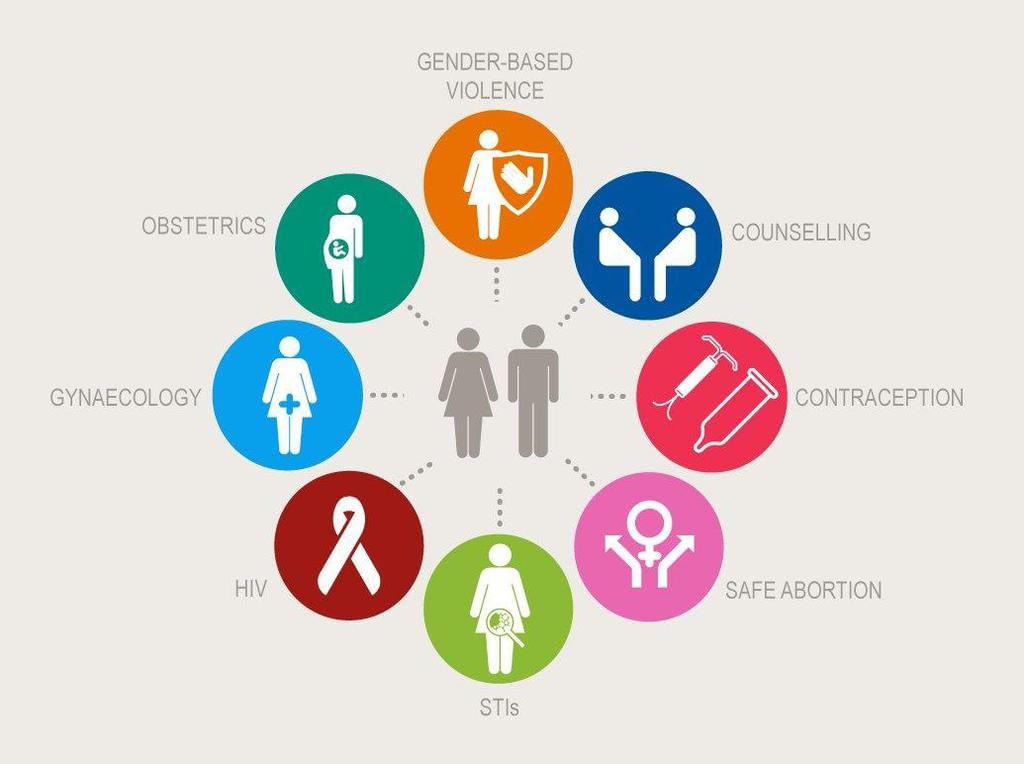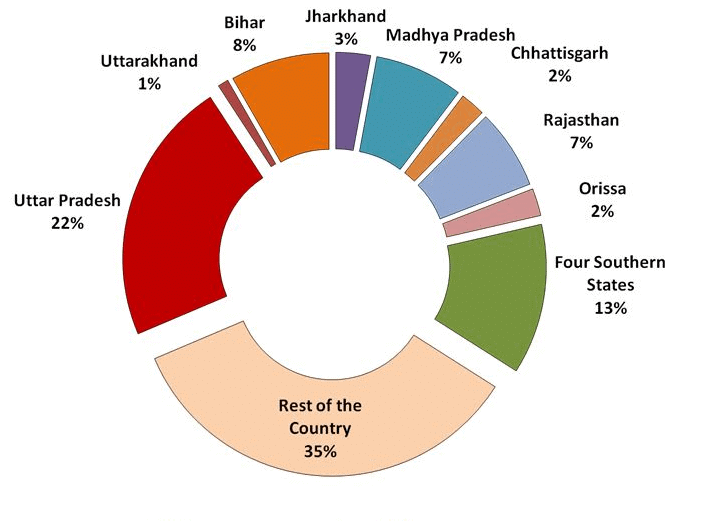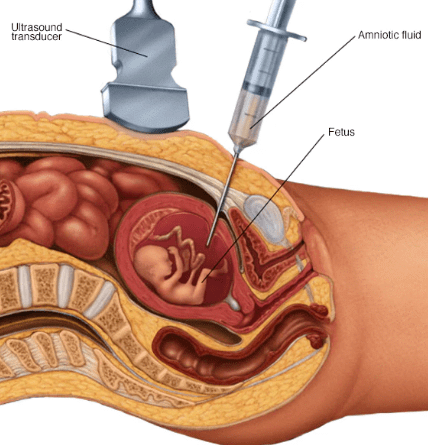NCERT Solutions Class 12 Biology Chapter 3 - Reproductive Health
Q1: What do you think is the significance of reproductive health in a society?
Ans: Reproductive health is the total well-being in all aspects of reproduction. It includes physical, emotional, behavioral, and social well-being.
- Sexually transmitted diseases such as AIDS, gonorrhea, etc. are transferred from one individual to another through sexual contact.
- It can also lead to unwanted pregnancies. Hence, it is necessary to create awareness among people, especially the youth, regarding various reproduction-related aspects as the young individuals are the future of the country and are most susceptible to acquiring sexually transmitted diseases.
- Creating awareness about the available birth control methods, sexually transmitted diseases and their preventive measures, and gender equality will help in bringing up a socially conscious healthy family.
- Spreading awareness regarding uncontrolled population growth and social evils among young individuals will help in building up a reproductively healthy society.
Q2: Suggest the aspects of reproductive health which need to be given special attention in the present scenario.
Ans: Reproductive health is the total well-being in all aspects of reproduction.
The aspects which have to be given special attention in the present scenarios are
- Counselling and creating awareness among people, especially the youth, about various aspects of reproductive health, such as sexually transmitted diseases, available contraceptive methods, cases of pregnant mothers, adolescence, etc.
- Providing support and facilities such as medical assistance to people during pregnancy, STDs, abortions, contraceptives, infertility, etc. for building a reproductively healthy society
Q3: Is sex education necessary in schools? Why?
Ans:
- Yes, the Introduction of sex education in schools is necessary. It would provide the right information to young individuals at the right time about various aspects of reproductive health such as reproductive organs, puberty, and adolescence-related changes, safe sexual practices, sexually transmitted diseases, etc.
- Young individual or adolescents are more susceptible to acquiring various sexually transmitted diseases. Hence, providing information to them at the right time would help them to lead a reproductively healthy life and also protect them from the myths and misconceptions about various sex-related issues.
Q4: Do you think that reproductive health in our country has improved in the past 50 years? If yes, mention some such areas of improvement.
Ans: Yes, reproductive health has tremendously improved in India in the last 50 years.
The areas of improvement are as follows:
- Massive child immunization program, which has lead to a decrease in the infant mortality rate.
- Maternal and infant mortality rate, which has been decreased drastically due to better postnatal care.
- Family planning, which has motivated people to have smaller families.
- Use of contraceptives, which has resulted in a decrease in the rate of sexually transmitted diseases and unwanted pregnancies.
Q5: What are the suggested reasons for population explosion?
Ans: The human population is increasing day by day, leading to a population explosion.
It is because of the following two major reasons:
1. Decreased death rate.
2. Increased birth rate and longevity. Population ExplosionThe death rate has decreased in the past 50 years. The factor leading to decreased death rate and increased birth rate are control of diseases, awareness and spread of education, improvement in medical facilities, ensured food supply in an emergency situation, etc. All this has also resulted in an increase in the longevity of an individual.
Population ExplosionThe death rate has decreased in the past 50 years. The factor leading to decreased death rate and increased birth rate are control of diseases, awareness and spread of education, improvement in medical facilities, ensured food supply in an emergency situation, etc. All this has also resulted in an increase in the longevity of an individual.
Q6: Is the use of contraceptives justified? Give reasons.
Ans: Yes, the use of contraceptives is absolutely justified. The human population is increasing tremendously. Therefore, to regulate the population growth by regulating reproduction has become a necessary demand in the present times. Various contraceptive devices have been devised to reduce unwanted pregnancies, which help in bringing down the increased birth rate and hence, in checking population explosion.
Q7: Removal of gonads cannot be considered as a contraceptive option. Why?
Ans:
- Contraceptive devices are used to prevent unwanted pregnancy and to prevent the spreading of STDs. Many methods, such as natural, barrier, oral, and surgical methods, prevent unwanted pregnancy.
- However, the complete removal of gonads cannot be a contraceptive option because it will lead to infertility and the unavailability of certain hormones that are required for the normal functioning of accessory reproductive parts. Therefore, only those contraceptive methods can be used that prevent the chances of fertilization rather than making the person infertile forever.
Q8: Amniocentesis for sex determination is banned in our country. Is this ban necessary? Comment.
Ans: Amniocentesis is a prenatal diagnostic technique that is used to determine the sex and metabolic disorders of the developing fetus in the mother’s uterus through the observation of the chromosomal patterns.
 Amniocentesis This method was developed so as to determine any kind of genetic disorder present in the fetus.
Amniocentesis This method was developed so as to determine any kind of genetic disorder present in the fetus.
However, unfortunately, this technique is being misused to detect the sex of the child before birth and the female fetus is then aborted. Thus, to prevent the increasing female foeticides, it is necessary to ban the usage of the amniocentesis technique for determining the sex of a child.
Q9: Suggest some methods to assist infertile couples to have children.
Ans: Infertility is the inability of a couple to produce a baby even after unprotected intercourse. It might be due to abnormalities present in either male or female or even both partners.
The techniques used to assist infertile couples to have children are as follows:
- Test Tube Babies: This involves in-vitro fertilization where the sperms meet the egg outside the body of a female. The zygote, hence produced, is then transferred in the uterus or fallopian tube of a normal female. The babies produced from this method are known as test-tube babies.
- Gamete Intrafallopian Transfer (GIFT): It is a technique that involves the transfer of gamete (ovum) from a donor into the fallopian tube of the recipient female who cannot produce eggs, but can conceive and can provide the right conditions for the development of an embryo.
- Intra Cytoplasmic Sperm Injection (ICSI): It is a method of injecting sperm directly into the ovum to form an embryo in the laboratory.
- Artificial insemination: Artificial insemination is a method of transferring semen (sperm) from a healthy male donor into the vagina or uterus of the recipient female. It is employed when the male partner is not able to inseminate the female or has low sperm counts.
Q.10: What are the measures one has to take to prevent contracting STDs?
Ans:
- Sexually transmitted diseases (STDs) get transferred from one individual to the other through sexual contact. Adolescents and young adults are at the greatest risk of acquiring these sexually transmitted diseases. Hence, creating awareness among adolescents regarding its after-effects can prevent them from contracting STDs.
- The use of contraceptives, such as condoms, etc. while intercourse, can prevent the transfer of these diseases. Also, sex with unknown partners or multiple partners should be avoided as they may have such diseases. Specialists should be consulted immediately in case of doubt so as to assure early detection and cure of the disease.
Q11: State True/False with explanation
(a) Abortions could happen spontaneously too. (True/False)
(b) Infertility is defined as the inability to produce a viable offspring and is always due to abnormalities/defects in the female partner. (True/False)
(c) Complete lactation could help as a natural method of contraception. (True/False)
(d) Creating awareness about sex-related aspects is an effective method to improve people's reproductive health. (True/False)
Ans:
(a) Abortions could happen spontaneously too. True
(b) Infertility is defined as the inability to produce a viable offspring and is always due to abnormalities/defects in the female partner. False
Infertility is defined as the inability of the couple to produce baby even after unprotected coitus. It might occur due to abnormalities/defects in either male or female or both.
(c) Complete lactation could help as a natural method of contraception. True
Complete lactation or lactational amenorrhea is a natural method of contraception. However, it is limited till lactation period, which continues till six months after parturition.
(d) Creating awareness about sex-related aspects is an effective method to improve people's reproductive health. True
Q12: Correct the following statements:
(a) Surgical methods of contraception prevent gamete formation.
(b) All sexually transmitted diseases are completely curable.
(c) Oral pills are very popular contraceptives among the rural women.
(d) In E. T. techniques, embryos are always transferred into the uterus.
Ans: (a) Surgical methods of contraception prevent gamete formation.
Correction: Surgical methods of contraception prevent the flow of gamete during intercourse.
(b) All sexually transmitted diseases are completely curable.
Correction: Some of the sexually transmitted diseases are curable if they are detected early and treated properly. AIDS is still an incurable disease.
(c) Oral pills are very popular contraceptives among rural women.
Correction: Oral pills are very popular contraceptives among urban women.
(d) In E. T. techniques, embryos are always transferred into the uterus.
Correction: In embryo transfer technique, 8 celled embryos are transferred into the fallopian tube while more than 8 celled embryos are transferred into the uterus.
|
59 videos|290 docs|168 tests
|
FAQs on NCERT Solutions Class 12 Biology Chapter 3 - Reproductive Health
| 1. What are the common reproductive health issues faced by women? |  |
| 2. How can one prevent sexually transmitted infections (STIs)? |  |
| 3. What are the factors that can affect male reproductive health? |  |
| 4. How does contraception play a role in reproductive health? |  |
| 5. What are the challenges faced in ensuring reproductive health services for all individuals? |  |

















